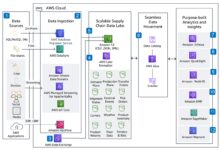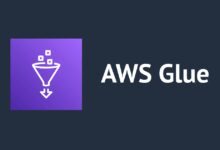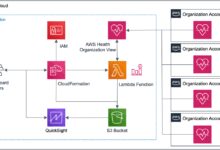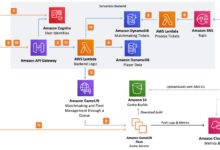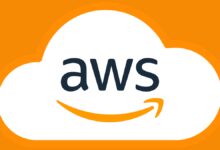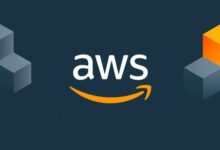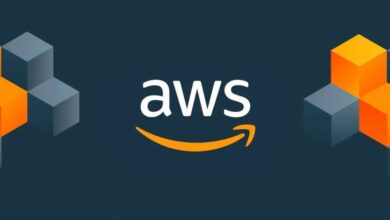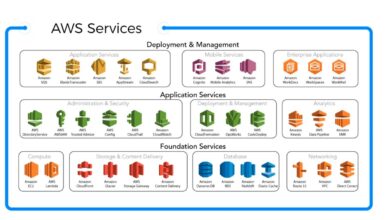AWS Certifications: 7 Ultimate Power-Packed Paths to Skyrocket Your Cloud Career
Kickstart your cloud journey with AWS certifications—the golden ticket to high-demand tech roles, better pay, and unmatched credibility in the IT world.
AWS Certifications: The Ultimate Gateway to Cloud Mastery

Amazon Web Services (AWS) dominates the global cloud computing market, holding over 30% share as of 2024. With such massive adoption across industries—from startups to Fortune 500 companies—the demand for skilled cloud professionals has skyrocketed. AWS certifications serve as a trusted benchmark for validating expertise in designing, deploying, and managing cloud infrastructure on the world’s leading cloud platform.
These certifications are not just badges on a LinkedIn profile—they’re career accelerators. According to a 2023 Global Knowledge IT Certification Survey, certified professionals earn up to 20% more than their non-certified peers. AWS certifications, in particular, rank among the highest-paying IT credentials, with roles like AWS Solutions Architect averaging over $130,000 annually in the U.S.
Whether you’re an aspiring developer, a seasoned sysadmin, or an IT manager looking to upskill, AWS offers a structured path tailored to your experience level and career goals. From foundational knowledge to expert-level specialization, these certifications provide a clear roadmap to mastering the cloud.
Why AWS Dominates the Cloud Landscape
AWS launched in 2006, pioneering the modern cloud era. Since then, it has continuously expanded its services—now offering over 200 fully featured services across compute, storage, databases, machine learning, and more. Its global infrastructure spans 33 geographic regions and 102 Availability Zones, ensuring low-latency access and high availability for users worldwide.
This extensive reach and service diversity make AWS the go-to platform for enterprises undergoing digital transformation. Companies like Netflix, Airbnb, and NASA rely on AWS for scalability, security, and innovation. As a result, organizations actively seek professionals who can navigate this ecosystem efficiently—making AWS certifications a critical differentiator in the job market.
Moreover, AWS invests heavily in training and certification programs, partnering with educational institutions and online learning platforms to make cloud skills accessible. This commitment ensures that the certifications remain aligned with real-world use cases and evolving industry needs.
The Value of AWS Certification in Today’s Job Market
In a competitive tech landscape, standing out is essential. AWS certifications validate your technical proficiency and demonstrate your commitment to continuous learning. Recruiters and hiring managers often use certifications as a filter when evaluating candidates, especially for cloud-specific roles.
- AWS-certified professionals are 3x more likely to be shortlisted for cloud roles.
- Over 70% of cloud job postings on LinkedIn mention AWS as a required or preferred skill.
- Many government and enterprise contracts require teams to include AWS-certified personnel.
Additionally, cloud certifications signal to employers that you understand best practices in security, cost optimization, and architectural design—key pillars of AWS’s Well-Architected Framework. This framework helps organizations build secure, high-performing, resilient, and efficient infrastructure for their applications.
“Certification is not just about passing a test—it’s about proving you can apply AWS services effectively in real-world scenarios.” — AWS Training and Certification Team
Understanding the AWS Certification Hierarchy
AWS has designed a tiered certification model that progresses from foundational knowledge to expert-level specialization. This structure allows professionals to grow their skills incrementally, ensuring they build a solid understanding before tackling advanced topics.
The hierarchy consists of six core certifications grouped into four levels: Foundational, Associate, Professional, and Specialty. Each level targets specific roles and requires varying degrees of hands-on experience. Let’s break down what each tier offers and who should pursue them.
Foundational Level: AWS Certified Cloud Practitioner
The AWS Certified Cloud Practitioner is the entry point into the AWS certification ecosystem. It’s designed for individuals who want to understand the basics of cloud computing and how AWS fits into the broader IT landscape.
This certification is ideal for non-technical roles such as sales, project management, or finance professionals who need a working knowledge of AWS. However, it’s also a smart first step for technical beginners who plan to pursue higher-level certifications later.
The exam covers four domains:
- Cloud Concepts (26%)
- Security and Compliance (25%)
- Technology (33%)
- Billing and Pricing (16%)
No prior AWS experience is required, though AWS recommends at least six months of exposure to AWS cloud services. Study resources include the AWS Training and Certification portal, free digital training, and practice exams.
Associate Level: Building Core Technical Skills
The Associate level is where most technical professionals begin their AWS journey. There are three certifications at this level:
- AWS Certified Solutions Architect – Associate
- AWS Certified Developer – Associate
- AWS Certified SysOps Administrator – Associate
Each targets a specific role and requires a deeper understanding of AWS services, best practices, and architectural principles. Candidates typically need one to two years of hands-on experience with AWS to succeed.
For example, the Solutions Architect – Associate exam focuses on designing distributed systems using AWS services, while the Developer – Associate exam emphasizes coding, deployment, and debugging applications on AWS. The SysOps Administrator – Associate is geared toward operations professionals responsible for deploying, managing, and operating workloads on AWS.
These certifications lay the groundwork for professional-level exams and are often prerequisites for cloud engineering roles in mid-sized to large organizations.
Professional-Level AWS Certifications: For the Elite Few
The Professional tier represents the pinnacle of general AWS expertise. These certifications are designed for experienced cloud architects and engineers who have mastered complex, real-world implementations.
aws certifications – Aws certifications menjadi aspek penting yang dibahas di sini.
There are two Professional-level certifications:
- AWS Certified Solutions Architect – Professional
- AWS Certified DevOps Engineer – Professional
Both require passing a rigorous exam that tests advanced knowledge in multi-account architectures, automation, security, and cost optimization. AWS recommends five or more years of experience with AWS before attempting these exams.
AWS Certified Solutions Architect – Professional
This certification validates your ability to design scalable, secure, and highly available systems on AWS. You’ll be tested on your ability to make architectural decisions based on business requirements, compliance needs, and operational excellence.
Key topics include:
- Advanced VPC design and hybrid connectivity
- Multi-region disaster recovery strategies
- Cost optimization for enterprise workloads
- Security at scale using IAM, KMS, and AWS Organizations
Many cloud architects cite this as one of the most challenging IT certifications due to its depth and scenario-based questions. However, earning it significantly boosts your credibility and opens doors to senior architecture roles.
AWS Certified DevOps Engineer – Professional
This certification is for professionals who automate and manage AWS environments using DevOps practices. It bridges the gap between development and operations, focusing on continuous delivery, infrastructure as code (IaC), and monitoring.
You’ll need to demonstrate proficiency in tools like AWS CodePipeline, CodeBuild, CloudFormation, and CloudWatch. The exam also covers automation of deployments, incident response, and system performance tuning.
Successful candidates can design and implement CI/CD pipelines, manage infrastructure at scale, and ensure high availability and fault tolerance. This certification is highly valued in organizations adopting agile and DevOps methodologies.
“The DevOps Engineer – Professional exam doesn’t just test what you know—it tests how you think under pressure.” — AWS Certified Professional, 2023
Specialty Certifications: Deep Dive into Niche Expertise
For professionals looking to specialize in high-demand areas, AWS offers a range of Specialty certifications. These are designed for individuals with deep expertise in specific domains and require existing AWS experience and often a prerequisite certification.
Currently, AWS offers five Specialty certifications:
- AWS Certified Advanced Networking – Specialty
- AWS Certified Security – Specialty
- AWS Certified Machine Learning – Specialty
- AWS Certified Data Analytics – Specialty
- AWS Certified Database – Specialty
These certifications are not for beginners. They demand extensive hands-on experience and a thorough understanding of complex AWS services and architectures.
AWS Certified Security – Specialty
This certification is for security professionals responsible for securing AWS environments. It covers identity and access management (IAM), data encryption, network security, threat detection, and compliance.
Candidates must understand how to implement security controls across multiple AWS services and integrate them with third-party tools. The exam includes scenario-based questions that test your ability to respond to security incidents and audit configurations.
With cyber threats on the rise, organizations are prioritizing cloud security. This certification is increasingly sought after by enterprises and government agencies alike.
AWS Certified Machine Learning – Specialty
As AI and machine learning become mainstream, this certification validates your ability to build, train, and deploy ML models using AWS services like SageMaker, Rekognition, and Comprehend.
You’ll need strong data science and programming skills (Python, TensorFlow, etc.) and a solid grasp of ML concepts like supervised and unsupervised learning, model evaluation, and hyperparameter tuning.
This certification is ideal for data scientists, ML engineers, and developers working on AI-driven applications. It’s one of the most technically demanding AWS certifications due to the breadth of knowledge required.
How to Choose the Right AWS Certification Path
With so many options, choosing the right certification can be overwhelming. The key is to align your choice with your career goals, current skill level, and industry demand.
Here’s a step-by-step guide to help you decide:
Assess Your Current Experience and Role
Start by evaluating your background:
- Are you new to IT or cloud computing? → Begin with Cloud Practitioner.
- Are you a developer? → Aim for Developer – Associate.
- Are you a systems administrator? → SysOps Administrator – Associate is ideal.
- Do you design IT architectures? → Solutions Architect – Associate is your starting point.
aws certifications – Aws certifications menjadi aspek penting yang dibahas di sini.
Be honest about your hands-on experience. AWS certifications are practical, not theoretical. You’ll need real-world exposure to pass the exams.
Map Certifications to Career Goals
Think long-term. Where do you want to be in 3–5 years?
- Cloud Architect? → Follow the path: Cloud Practitioner → Solutions Architect – Associate → Solutions Architect – Professional.
- DevOps Engineer? → Cloud Practitioner → Developer or SysOps Associate → DevOps Engineer – Professional.
- Security Expert? → Cloud Practitioner → Security – Specialty (with Associate-level experience).
- Data or ML Specialist? → Cloud Practitioner → Data Analytics or Machine Learning – Specialty.
Some roles may require multiple certifications. For example, a cloud security architect might hold both the Security – Specialty and Solutions Architect – Professional certifications.
Check Job Market Demand
Use job boards like LinkedIn, Indeed, and Glassdoor to see which AWS certifications are most frequently mentioned in job postings. As of 2024, the most in-demand certifications are:
- AWS Certified Solutions Architect – Associate
- AWS Certified Cloud Practitioner
- AWS Certified Developer – Associate
- AWS Certified Security – Specialty
- AWS Certified DevOps Engineer – Professional
Geographic location also matters. In North America and Europe, specialty certifications are gaining traction, while in emerging markets, foundational and associate-level certs are more common.
“The best certification is the one that aligns with your career path—not the one that’s trending.” — Cloud Career Advisor, 2024
Preparing for AWS Certification Exams: Proven Strategies
Passing an AWS certification exam requires more than just memorizing facts. You need hands-on practice, conceptual understanding, and exam strategy.
Here’s how to prepare effectively:
Use Official AWS Training Resources
AWS provides a wealth of free and paid resources through its Training and Certification portal. These include:
- Free digital courses (e.g., AWS Cloud Practitioner Essentials)
- Instructor-led training (ILT) and virtual classrooms
- Practice exams and sample questions
- Exam guides and blueprints
These materials are updated regularly and reflect the latest exam content. They should form the foundation of your study plan.
Gain Hands-On Experience with AWS
Nothing beats real-world practice. Create an AWS Free Tier account and start building projects. Try deploying a web application using EC2, S3, and RDS. Set up a VPC with subnets and security groups. Automate deployments with CloudFormation or Terraform.
Hands-on labs from platforms like Qwiklabs and Cloud Academy offer guided learning paths that simulate real AWS environments.
The more you experiment, the more confident you’ll be during the exam.
Join Study Groups and Communities
Engage with the AWS community through forums like the AWS re:Post, Reddit’s r/AWSCertifications, and LinkedIn groups. These platforms allow you to ask questions, share tips, and learn from others’ experiences.
Many candidates find study groups helpful for accountability and motivation. You can also find free study guides and flashcards shared by past test-takers.
Benefits of AWS Certifications Beyond the Paycheck
While higher salaries are a major draw, the benefits of AWS certifications go far beyond financial gain.
Enhanced Problem-Solving and Technical Confidence
Studying for AWS certifications forces you to think critically about system design, security, and scalability. You’ll learn to evaluate trade-offs between different services and architectures, which translates into better decision-making on the job.
Many certified professionals report feeling more confident when troubleshooting issues or proposing solutions to stakeholders.
Global Recognition and Career Mobility
AWS certifications are recognized worldwide. Whether you’re working remotely, relocating, or applying for international roles, your certification holds value across borders.
They also open doors to consulting, freelancing, and teaching opportunities. Many AWS-certified experts go on to become cloud consultants, trainers, or solution architects for global firms.
Access to AWS Partner Networks and Events
Certified individuals gain access to exclusive AWS programs like the AWS Partner Network (APN) and AWS Community Builders. These networks offer training, networking events, and early access to new services.
aws certifications – Aws certifications menjadi aspek penting yang dibahas di sini.
Attending AWS events like re:Invent or re:Inforce can further expand your knowledge and professional connections.
“Certification changed my career. I went from being a helpdesk technician to a cloud architect in two years.” — AWS Certified Solutions Architect, UK
Common Challenges and How to Overcome Them
Despite their benefits, AWS certifications come with challenges. Here are the most common ones and how to tackle them:
Exam Cost and Time Investment
AWS exams range from $100 (Cloud Practitioner) to $300 (Professional and Specialty). For many, this is a significant expense, especially if retakes are needed.
Solution: Plan your study schedule carefully. Use free resources first. Take practice exams to assess readiness before booking the real one. Some employers offer reimbursement programs—check with your HR department.
Keeping Up with AWS’s Rapid Changes
AWS releases hundreds of new features and services each year. Certification exams are updated regularly, which means study materials can become outdated quickly.
Solution: Follow AWS blogs, webinars, and the What’s New page. Focus on core services that are less likely to change (e.g., EC2, S3, IAM) while staying aware of major updates.
Imposter Syndrome and Exam Anxiety
Many candidates feel overwhelmed by the breadth of knowledge required. It’s normal to doubt yourself, especially when facing scenario-based questions.
Solution: Break your study into manageable chunks. Focus on one domain at a time. Simulate exam conditions with timed practice tests. Remember, even experienced professionals started where you are now.
What are the prerequisites for AWS certifications?
There are no formal prerequisites for most AWS certifications, but AWS strongly recommends relevant experience. For example, the Cloud Practitioner exam suggests six months of AWS exposure, while Professional and Specialty exams recommend five or more years of hands-on work. Associate-level certs typically require one to two years of experience.
How long does it take to prepare for an AWS certification?
Preparation time varies by individual and certification level. Beginners may spend 40–60 hours studying for the Cloud Practitioner exam. Associate-level exams often require 80–120 hours of study and hands-on practice. Professional and Specialty certifications may take 150+ hours due to their complexity.
Are AWS certifications worth it in 2024?
Yes. AWS certifications remain highly valuable in 2024. They are recognized globally, lead to higher salaries, and are frequently required in job postings. With cloud adoption continuing to grow, certified professionals are in high demand across industries.
Can I take AWS exams online?
Yes. AWS partners with Pearson VUE to offer online proctored exams. You can take the test from home or office with a stable internet connection, webcam, and quiet environment. Onsite testing is also available at Pearson VUE test centers.
How long are AWS certifications valid?
AWS certifications are valid for three years. You can renew them by taking a recertification exam or earning a higher-level certification in the same track. AWS sends reminders before your certification expires.
Mastering AWS certifications is one of the most strategic moves you can make in your tech career. From foundational knowledge to expert specialization, these credentials validate your skills, boost your earning potential, and open doors to exciting opportunities. Whether you’re just starting out or aiming for the top, there’s a certification path tailored to your goals. The cloud future is here—certify your place in it.
aws certifications – Aws certifications menjadi aspek penting yang dibahas di sini.
Further Reading:
